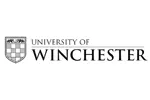About Business Management, MSc - at University of Winchester
Business Management at Winchester is the core programme in the suite of MSc Business Management degrees that includes:
MSc Business Management and Finance
MSc Business Management and International Business
MSc Business Management and Marketing
MSc Business Management and Sport
MSc Health Care Management (subject to validation, please see website for details)
Each of the programmes has a common set of core modules that enable students to make an informed choice about whether to specialise and undertake one of the optional pathways.
Whatever the decision, students have the opportunity to graduate with this general MSc Business Management. The knowledge and skills developed on the programmes is of value to applicants with or without previous business experience. Those at the beginning of a career in business management with a recently awarded first degree gain a competitive edge in the workplace, and those with more experience find it a valuable means of career development.
FactfileEntry requirements:
Normally a first or second class Honours degree or professional experience in the area of study
If English is not your first language: IELTS 6.5 (including 6.5 in academic writing) or a TOEFL score of 575 (paper-based) or 232 (computer-based) or equivalent
Application process: UKPASS (full-time applicants only) or Direct Entry Application Form (part-time applicants only)
Programme ContentThe core modules form the basis of the suite of programmes and they aim to provide a strategic view and stress the connections between business functions, such as finance and marketing. The modules contained on the optional pathways continue this theme by relating their specialisms to the goals of the organisation as a whole. Students undertake four core modules that are common to all of the optional pathways and choose four optional modules (some choices depend on pathway)
ModulesThe Global Business Environment evaluates the interface between organisations and the dynamic global business environment in which they operate. Students focus on the political, economic, social and technical factors that shape the global marketplace. Consideration is given to the critical success factors influencing a company’s decision about the method and extent of its internationalisation.
Strategic Decision Making considers general management, dealing with the strategic processes within the organisation, including how enterprises create, sustain and deliver value to customers. A multi-disciplinary approach is taken to the subject by knitting together different areas of the organisation, namely, marketing, finance, human resources, operations and product development, as well as consideration of the supply chain and distribution systems.
The Management and Leadership of People explores managing people as critical to the success of an organisation. It aims to provide a systematic understanding of the key issues and concepts in the management of people and an ability to consider the issues with a critical perspective.
Research Methods aims to introduce and critically explore various research models, techniques and evaluation tools to give an overview of common statistical terms and an understanding of the relevant statistical tests to research data. It introduces some of the key philosophical debates in research methodology and epistemology, so students develop a mature understanding of the role of both quantitative and qualitative research techniques.
Optional modules:Strategic Marketing
Corporate Finance
Financial Risk Management
Organisation Development and Change
International Business Communication
Management Responses to Contemporary Global Issues
Business Consulting
Management of Contemporary Global Environmental Issues
Global Sports Marketing
Management and Provision of International Sport
Contemporary Issues in the Business of Global Sport
Business Consulting is an innovative optional module that develops the student’s business knowledge and skills by applying them to a consultancy project undertaken on behalf of an external agency. In most cases this is conducted by two students working together and tutorial supervision is provided.
AssessmentA wide variety of assessment methods are used including business reports, essays, presentations, examinations and group exercises.
CareersThe programme develops skills and knowledge for action in the workplace. Business management is useful for a wide variety of careers in both the public and private sectors. The programme also provides a firm foundation for undertaking postgraduate research or further training.


